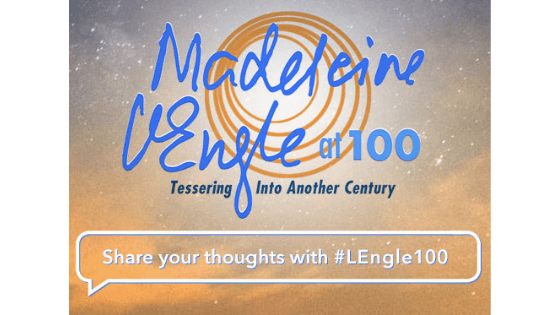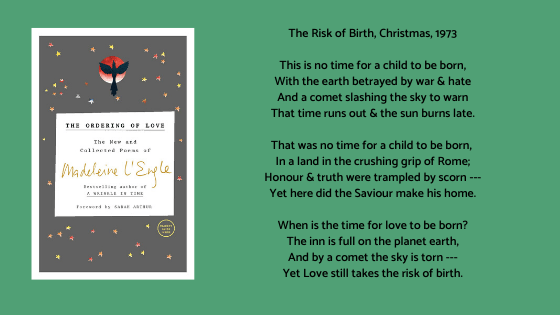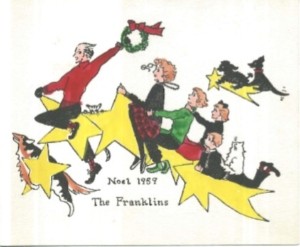by Jessica Kantrowitz
Dear Ones,
I’ve all but given up reading non-fiction lately. I’m too saturated with reality, too overwhelmed with a never-ending news cycle that keeps my mind in fight-or-flight mode constantly. There are so many good writers right now grappling with questions of faith, trauma and healing, parenting, social justice, and racial justice, and I keep buying their books, but when I open them to read my mind is a fog.
The problem is, I’ve reread all the books I keep by my bedside too recently for another reread, including Madeleine L’Engle’s Time Quintet – A Wrinkle in Time, A Wind in The Door, A Swiftly Tilting Planet, Many Waters, and An Acceptable Time. You know how you can tell in your gut if it’s time yet or not? So a couple of months ago, when the libraries in Boston finally opened again for socially distanced pick-up, I sat down at my computer and Googled, “best young adult fiction of all time.” I needed new-to-me books that drew me in as well as my old standbys: The Arm of the Starfish, Watership Down, A Wizard of Earthsea, The Princess and the Goblin.
I felt like a kid again when I began to receive notifications about the books I’d requested. If I could have, I’d have hopped on my bike instead of in my car to zip over to the library, lingering in the nearby woods when I kept arriving before they were open. Then — what treasure! The heartwarming The Vanderbeekers of 141st Street by Karina Yan Glaser wrapped me up in the charm of New York City. Howl’s Moving Castle by Diana Wynne Jones blurred the lines between fantasy and fiction. Everything Sad is Untrue by Daniel Nayeri, though technically nonfiction/memoir, enthralled me with stories both ethereal and earthy. Yet in all of these books, as in Madeleine’s, the escape into fantasy was also a way to process the seemingly impossible challenges of reality.
“A child who has been denied imaginative literature is likely to have far more difficulty in understanding cellular biology or post-Newtonian physics than the child whose imagination has already been stretched by reading fantasy and science fiction.”
Walking on Water: Reflections on Faith and Art
I’m not the only one who has been leaning into fantasy lately. On October 15th, TIME Magazine published a list of the 100 best fantasy books of all time. When I saw it, I immediately opened another tab with my library’s request form. TIME asked fantasy authors Tomi Adeyemi, Cassandra Clare, Diana Gabaldon, Neil Gaiman, Marlon James, N.K. Jemisin, George R.R. Martin and Sabaa Tahir to nominate books, then rate the 250 nominees on a scale. TIME’s editors then considered elements such as “originality, ambition, artistry, critical and popular reception, and influence on the fantasy genre and literature more broadly” to come up with the final list.
“A story where myth, fantasy, fairy tale, or science fiction explore and ask questions moves beyond fragmatic dailiness to wonder. Rather than taking the child away from the real world, such stories are preparation for living in the real world with courage and expectancy.”
Walking on Water: Reflections on Faith and Art
A Wrinkle in Time is on it, of course, along with A Swiftly Tilting Planet, and a host of my other favorites. (If you haven’t read The Princess Bride, may I say that the book is even better than the movie.) The first two, The Arabian Nights and Le Morte D’Arthur, made me feel a little guilty for never finishing them. Maybe someday. But perhaps most exciting were the newer books I was less familiar with. Shadowshaper by Daniel José Older went on my “requested” list right away, as did The Wrath and The Dawn by Renée Ahdieh and Children of Blood and Bone by Tomi Adeyemi. I can’t wait to zip over to my little library by the woods to pick them up.
And do you know what? I just got that feeling in my gut about an old favorite. It’s time to reread The Arm of the Starfish again. I’m adding it to my list.
What’s on your list?
Tesser well,
Jessica Kantrowitz
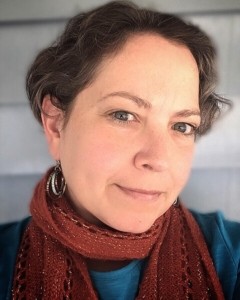
Blog debut of Jessica Kantrowitz for madeleinelengle.com. Jessica Kantrowitz writes about faith, culture, social justice, and chronic illness, including her own struggles with depression and migraines. She has worked as a storyteller for Together Rising, and her writing has been featured in places like Sojourners, Think Christian, The Good Men Project, and Our Bible App. Despite having earned a Master of Divinity, she still feels very much like an apprentice. Her first book, The Long Night: Readings and Stories to Help You through Depression is available wherever books are sold, including your local, independent bookstore.




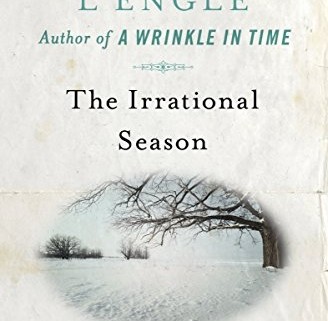
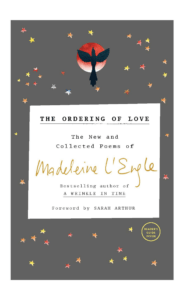 Another to consider: her poem “For Lent, 1966.” You can read her poem in its entirety in the newly re-released book of poetry,
Another to consider: her poem “For Lent, 1966.” You can read her poem in its entirety in the newly re-released book of poetry, 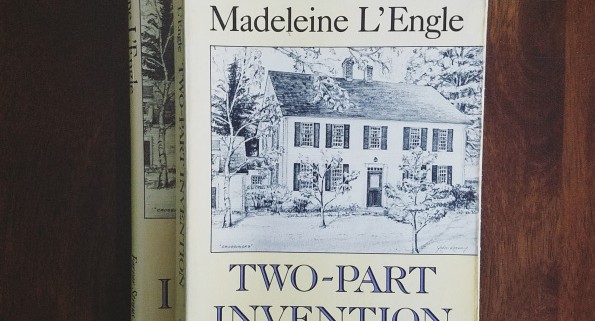
 RuthAnn Deveney works in corporate learning and development and loves walking around her small town of Kennett Square, Pennsylvania. She lives there with her husband, dog, and a huge collection of Madeleine L’Engle books, including her most prized volume: a signed copy of
RuthAnn Deveney works in corporate learning and development and loves walking around her small town of Kennett Square, Pennsylvania. She lives there with her husband, dog, and a huge collection of Madeleine L’Engle books, including her most prized volume: a signed copy of 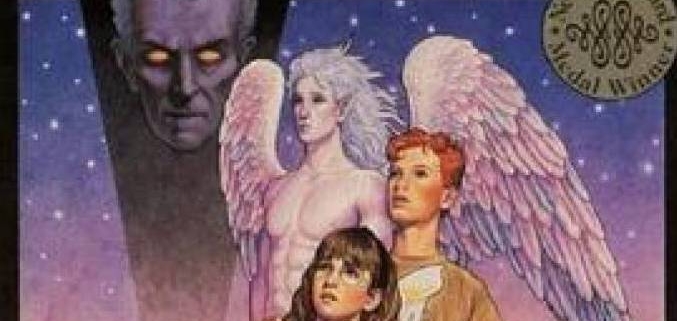
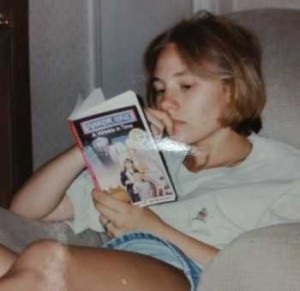 As amazing as it is that I remember that moment, I don’t recall reading the book. I remember thinking that I knew the book was true. But I do remember distinctly the next time Madeleine came into my life. I was in eighth grade: rebellious, full of angst, and yet still a reader. One day while browsing the library, the name “L’Engle” caught my eye, and I pulled off the shelf
As amazing as it is that I remember that moment, I don’t recall reading the book. I remember thinking that I knew the book was true. But I do remember distinctly the next time Madeleine came into my life. I was in eighth grade: rebellious, full of angst, and yet still a reader. One day while browsing the library, the name “L’Engle” caught my eye, and I pulled off the shelf 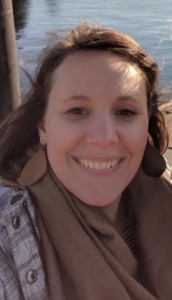 Melissa Giggey spends most of her time reading and writing with teenagers in a classroom and exploring life and adventure as a mom in Gainesville, Georgia, but reads voraciously and writes
Melissa Giggey spends most of her time reading and writing with teenagers in a classroom and exploring life and adventure as a mom in Gainesville, Georgia, but reads voraciously and writes 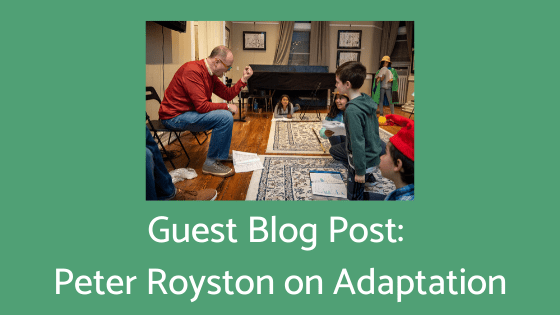
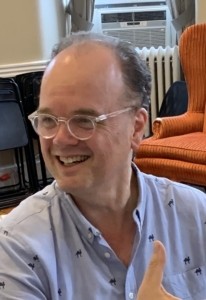 Tarrytown Music Hall in Tarrytown, NY. A theater educator and writer, Peter is the author of over 50 study guides for Broadway, Off Broadway and regional productions, including a series of lesson plans for the A Wrinkle in Time play adaptations at
Tarrytown Music Hall in Tarrytown, NY. A theater educator and writer, Peter is the author of over 50 study guides for Broadway, Off Broadway and regional productions, including a series of lesson plans for the A Wrinkle in Time play adaptations at 